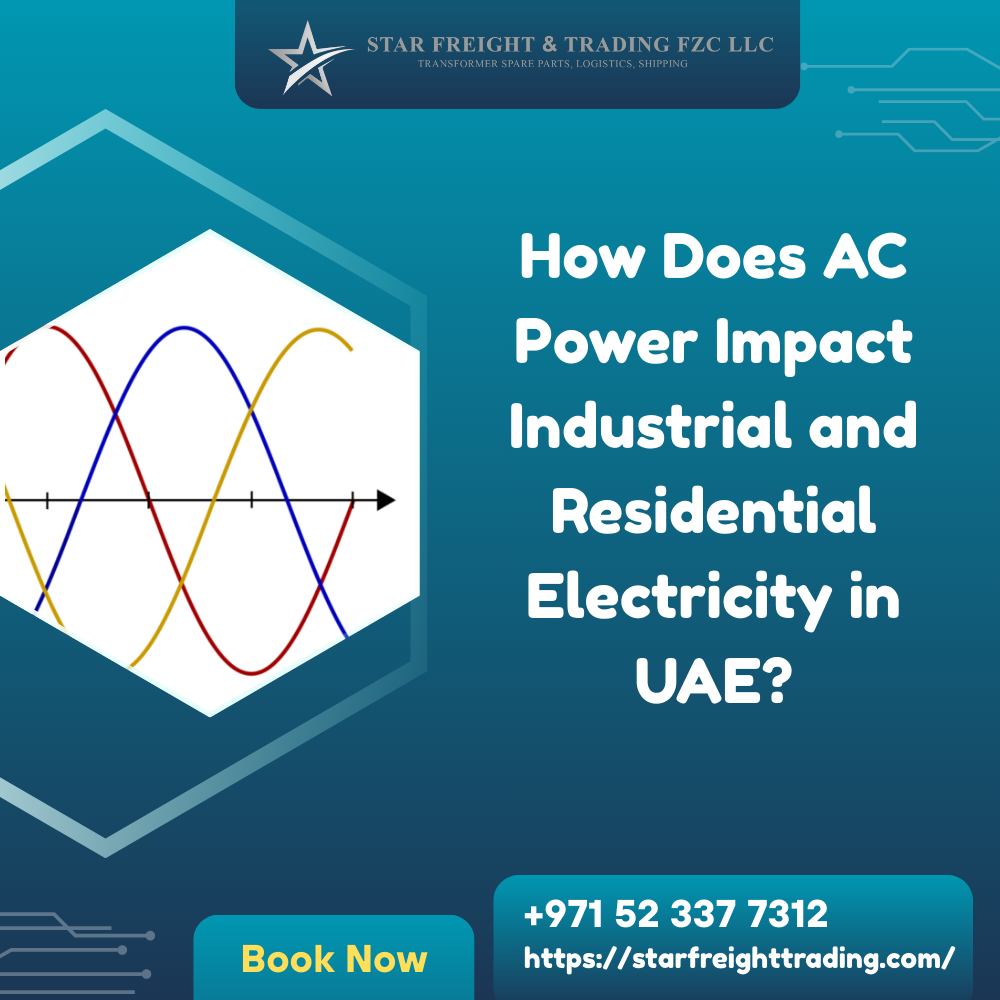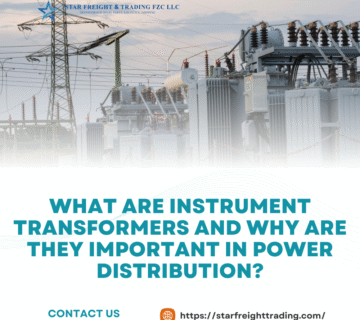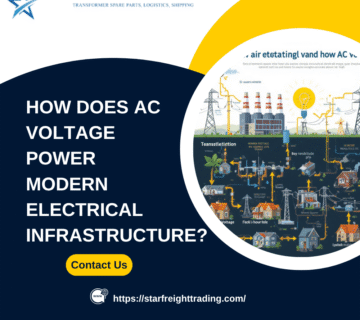When we talk about electricity in the UAE, one of the most important things to understand is AC power (Alternating Current). This is the type of electricity that flows back and forth in cycles, unlike DC (Direct Current), which moves in only one direction. Almost every home, office, and factory in the UAE runs on AC power because it is more practical for long-distance transmission and everyday use.
AC Power in Residential Areas
In UAE homes, AC power is what keeps lights on, fans running, air conditioners cooling, and appliances working. Because the UAE has a very hot climate, air conditioners are used all year round, which means a huge part of residential electricity demand comes from cooling systems. AC power makes it easier to supply stable electricity to households and ensures that even heavy appliances like washing machines, refrigerators, and air conditioners can work smoothly.
AC Power in Industries
For industries in the UAE, AC power is even more important. Factories, construction sites, and production units all require large amounts of electricity to operate heavy machinery, motors, and pumps. Because transformers make it simple to adjust the voltage, AC electricity is perfect in this situation. This means industries can get the high power they need without losing energy during transmission.
Why AC Power is the Best Choice
The main reason the UAE relies on AC power is that it is efficient, cost-effective, and safe for both homes and industries. It can be transmitted over long distances with minimal energy loss, which is important since the UAE has a large and growing electricity network to support its cities, industries, and smart projects. Our products
Why does the UAE use AC power instead of DC power?
The UAE, like most countries, uses AC (Alternating Current) power instead of DC (Direct Current) because AC is more efficient for generating, transmitting, and distributing electricity over long distances. Power stations can easily increase or decrease AC voltage using transformers, which helps reduce energy loss during transmission. In contrast, DC is harder and more expensive to transmit over long distances since it requires complex equipment to change voltage levels. AC is also more compatible with household and industrial appliances, which are designed to run on alternating current. This makes AC a more practical and cost-effective choice for the UAE’s growing cities, industries, and infrastructure needs.
Why is AC power important in the UAE’s climate?
AC power is very important in the UAE’s climate because the country experiences extremely hot weather for most of the year, with summer temperatures often crossing 45°C. In such heat, air conditioning becomes a necessity in homes, offices, shopping malls, schools, and even cars to keep people safe and comfortable. Without AC powers, daily life and work would become very difficult, and health problems like heatstroke and dehydration could increase. Reliable AC powers also supports businesses, hospitals, and industries that depend on controlled indoor environments, making it a key part of life in the UAE’s desert climate. Our Services
Who supplies AC power in the UAE?
In the UAE, AC power is mainly supplied by government-owned utility companies. Electricity in Abu Dhabi is supplied by Al Ain Distribution Company (AADC) and Abu Dhabi Distribution Company (ADDC). In Dubai, it is managed by the Dubai Electricity and Water Authority (DEWA), while in the northern emirates, supply comes from the Federal Electricity and Water Authority (FEWA), now part of Etihad Water and Electricity. These companies generate, transmit, and distribute AC powers to homes, businesses, and industries across the country.
Is AC power safe for everyday use?
Yes, AC (Alternating Current) power is generally safe for everyday use because it is carefully regulated and delivered through proper wiring, circuit breakers, and safety standards in homes and workplaces. It is the most common type of electricity used worldwide since it can travel long distances efficiently and power everything from lights and fans to appliances and machines. However, like any form of electricity, AC powers can be dangerous if misused or if wiring is faulty, which is why safety measures such as insulated wires, grounding, and circuit protection are important. When used correctly, AC powers is reliable and safe for daily life.
Conclusion
AC power is the backbone of electricity supply in the UAE. Whether it’s keeping homes cool in Dubai, powering skyscrapers in Abu Dhabi, or running industries in Sharjah, AC powers makes sure that energy is delivered reliably and efficiently. Without AC powers, the modern lifestyle and rapid industrial growth of the UAE would not be possible. Contact Us
Frequently Ask Questions
1. What is the standard AC voltage in the UAE?
The UAE uses a standard supply of 230 volts with a frequency of 50 Hz.
2. What type of plug is used in the UAE?
The UAE mainly uses the British-style Type G plug with three rectangular pins.
3. Can I use my electronic devices from another country in the UAE?
If your device supports 230V/50Hz, you can use it directly. Otherwise, you’ll need a voltage converter or adapter.
4. Is AC powers reliable in the UAE?
Yes, the UAE has a stable and reliable electricity supply with minimal outages.
5. Do hotels in the UAE provide plug adapters?
Many hotels provide adapters on request, but it’s best to carry your own.
6. How is electricity generated in the UAE?
Electricity in the UAE is mainly produced from natural gas, with increasing use of solar and nuclear energy.





No comment